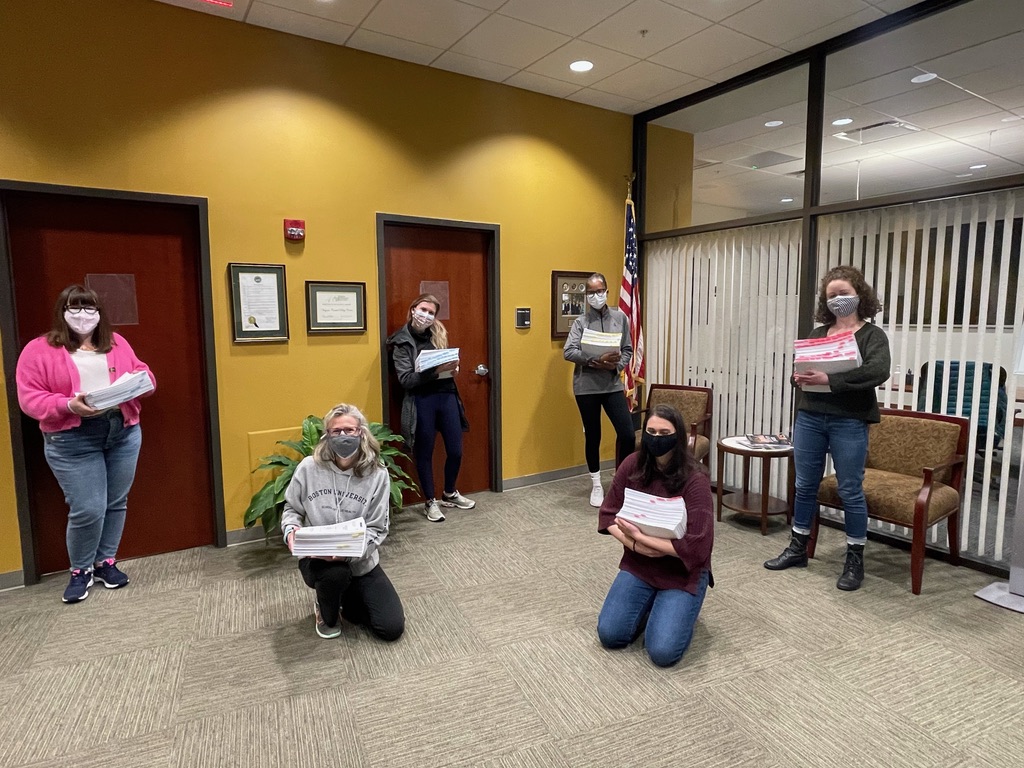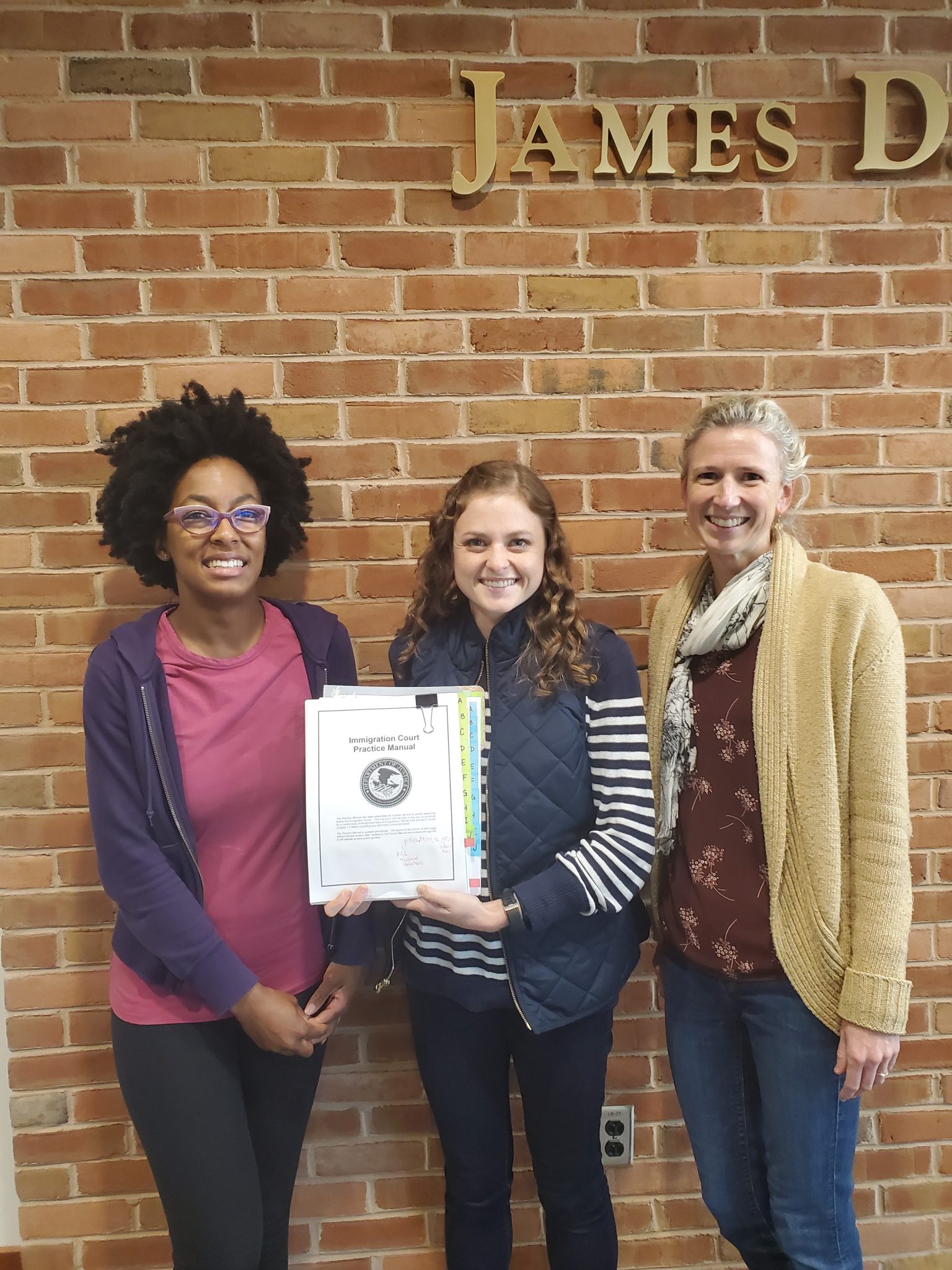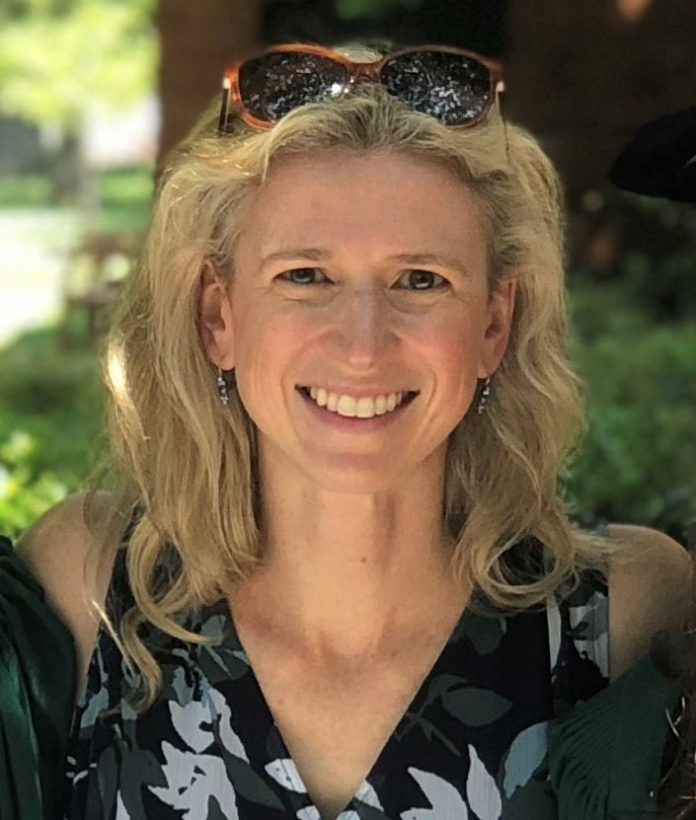Now in her eighth year at the Marshall-Wythe School of Law, Professor Stacy Kern-Scheerer continues her work in both immigration law and encouraging student involvement in the local community.
In the fall of 2019, Kern-Scheerer established the Immigration Clinic at the law school. The clinic first received private funding from donors, which allowed for the establishment of the program prior to the spread of COVID-19. The clinic was developed with a strong philosophy to serve the immigrants in the Hampton Roads community, as there is a lack of nonprofits and pro-bono services in the area.
“I wanted to make sure that we are here to really become a part of serving underrepresented members of our community,” Kern-Scheerer said.
Kern-Scheerer supervises a group of law students that volunteer to be involved in the clinic. The students are trained to properly offer legal representation to immigrants in the greater Hampton Roads community and are responsible for every aspect of the case to which they are assigned.
“Our clinic is really focused on humanitarian forms of immigration relief; in particular asylum seekers, those individuals who have been survivors of violence in the United States and also survivors of trafficking and survivors of domestic violence and abuse,” Kern-Scheerer said. “So, that’s sort of the world of cases that we take, and so, it’s important, like I said, that we’re serving the immigrant communities here in Hampton Roads with a particular focus on those who would really not have access to representation otherwise, particularly those who doesn’t have the means, the financial means, to hire private representation.”

STACY KERN-SCHEERER / COURTESY PHOTO
The only operating immigration court in Virginia is in Arlington, which Kern-Scheerer notes as a barrier for immigrants seeking legal representation. Students who serve as representatives travel to Arlington to accompany their clients.
“Unlike in criminal cases, there is no right to an appointed attorney in immigration court,” Kern-Scheerer said. “Even though the consequences, obviously, of deportation or deportation orders are so impactful to someone’s life, there isn’t a right to an appointed counsel. So, many people go unrepresented in immigration courts and have to represent themselves.”
“Unlike in criminal cases, there is no right to an appointed attorney in immigration court,” Kern-Scheerer said. “Even though the consequences, obviously, of deportation or deportation orders are so impactful to someone’s life, there isn’t a right to an appointed counsel. So, many people go unrepresented in immigration courts and have to represent themselves.”
Law students are able to sign up to be involved with the clinic at the start of each semester. As students have returned to in-person classes, the clinic has resumed its work with the community during the fall semester of this year.
Outside of her time at the College, Kern-Scheerer graduated magna cum laude from Boston University School of Law and also received her Masters of Public Health from the Boston University School of Public Health. She also served as Assistant Counsel in the U.S. Senate Office of the Legislative Counsel from 2003-2013.
Her long-standing interest in public health and health policy, particularly in regards to access to healthcare and access to health insurance, prompted her to study public health as well as law.
“I think, you know, what one thing that unites what I do now in immigration context is that in health policy — in public health policy — we have conversations about what is a right and what is a privilege,” Kern-Scheerer said. “Because of my background as a legislative drafter, I was very comfortable, and I really like reading statutes and looking at statutory rules and regulations. And they’re all kind of dovetails in this really interesting way that kind of brings together these substantive questions and policy questions that I’m interested in. So that is the type of law that I like to actually study and practice.”
Kern-Scheerer emphasized the balance she noticed between her study of public health and law, as she was able to think about different ways of approaching and solving problems by combining the two studies. She noted the importance of seeking a diversity of education, especially in regards to problem solving and reflection.
“I think it has served me really well because I think that sometimes certain disciplines, just all disciplines, can be too locked into their way of defining a problem…and also the way to solve it,” Kern-Scheerer said. “And I think that I have just been really fortunate to be able to, from the very beginning of my post-college education, make sure that I didn’t only see the world kind of in one way.”
In regards to finding this balance, Kern-Scheerer offered advice to undergraduates on approaching and enduring the college process.
“I think it can be easy, especially if… after graduation… to find yourself in spaces where people are trying to talk to you into, maybe not intentionally, trying to talk you into being someone you’re not… so I just think it’s really important to stay true to your instincts and goals and move through with confidence that you know yourself,” Kern-Scheerer said. “And I think that that’s something that’s really important as you kind of move forward in your careers. And in your lives, not just your careers. Just to sort of trust in yourself, that you know yourself and that you know follow that instinct that you have as to what drives you and what motivates you.”
“I think it can be easy, especially if… after graduation… to find yourself in spaces where people are trying to talk to you into, maybe not intentionally, trying to talk you into being someone you’re not… so I just think it’s really important to stay true to your instincts and goals and move through with confidence that you know yourself,” Kern-Scheerer said. “And I think that that’s something that’s really important as you kind of move forward in your careers. And in your lives, not just your careers. Just to sort of trust in yourself, that you know yourself and that you know follow that instinct that you have as to what drives you and what motivates you.”

As undergraduates and other individuals approach tasks with overarching goals in mind, Kern-Scheerer recognizes the importance of embracing the possibility of change.
“You can end up doing things you never expected to do, and even if you had a sense of who you are and where you were going, it’s not to be mistaken with not having a plan,” Kern Scheerer said. “So I think there is a sort of happy-medium between being driven and knowing what inspires you and what drives you, but not being so dead-set on something that you might miss an opportunity that is an opportunity to grow and do something really interesting that you just never considered before. And so I think it is important to have goals and to have plans, but more than anything to know what inspires you and what drives you and then find the ways in which you can do that. It might be ways that you didn’t even know existed.”


[…] Read more […]